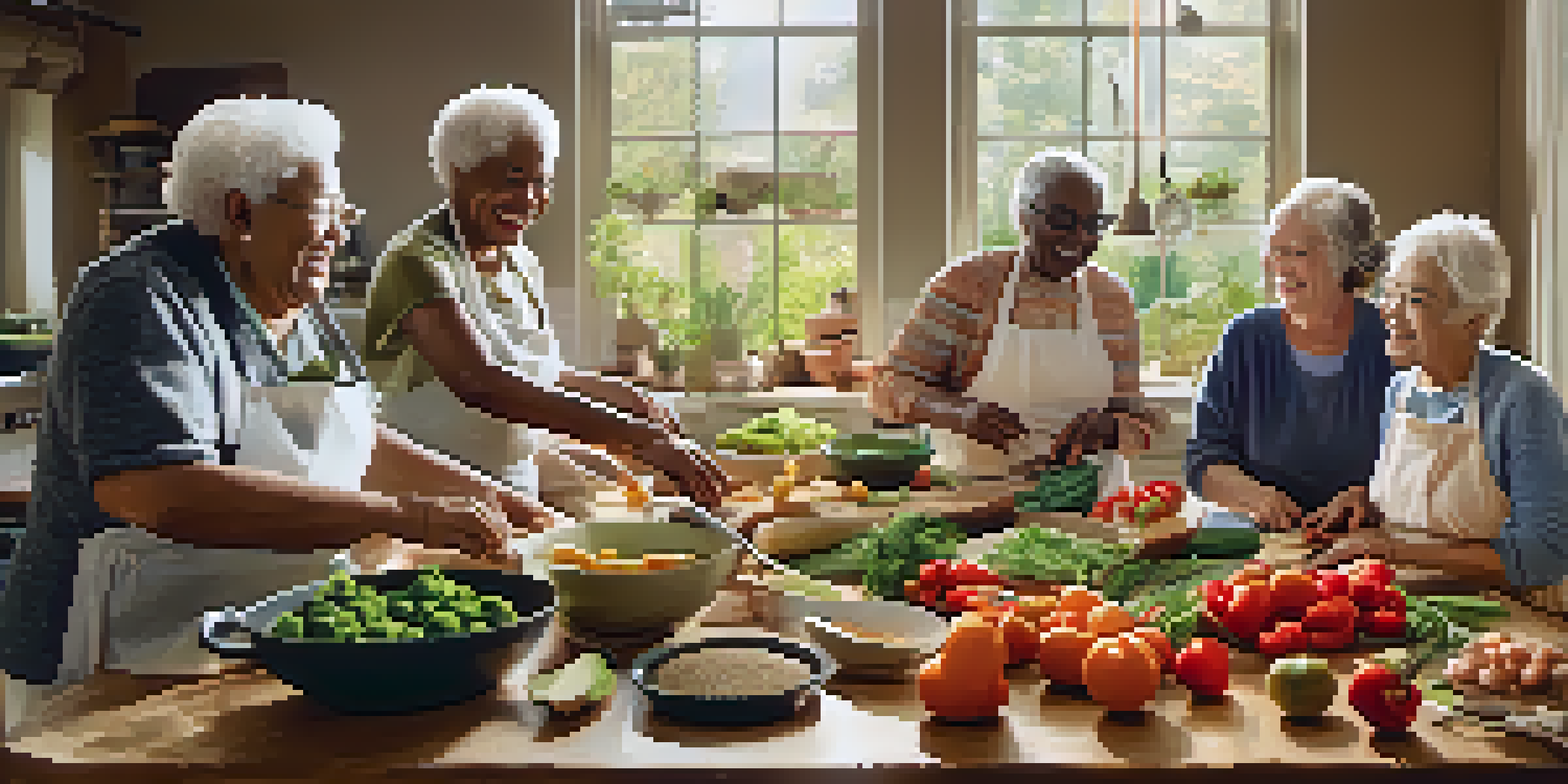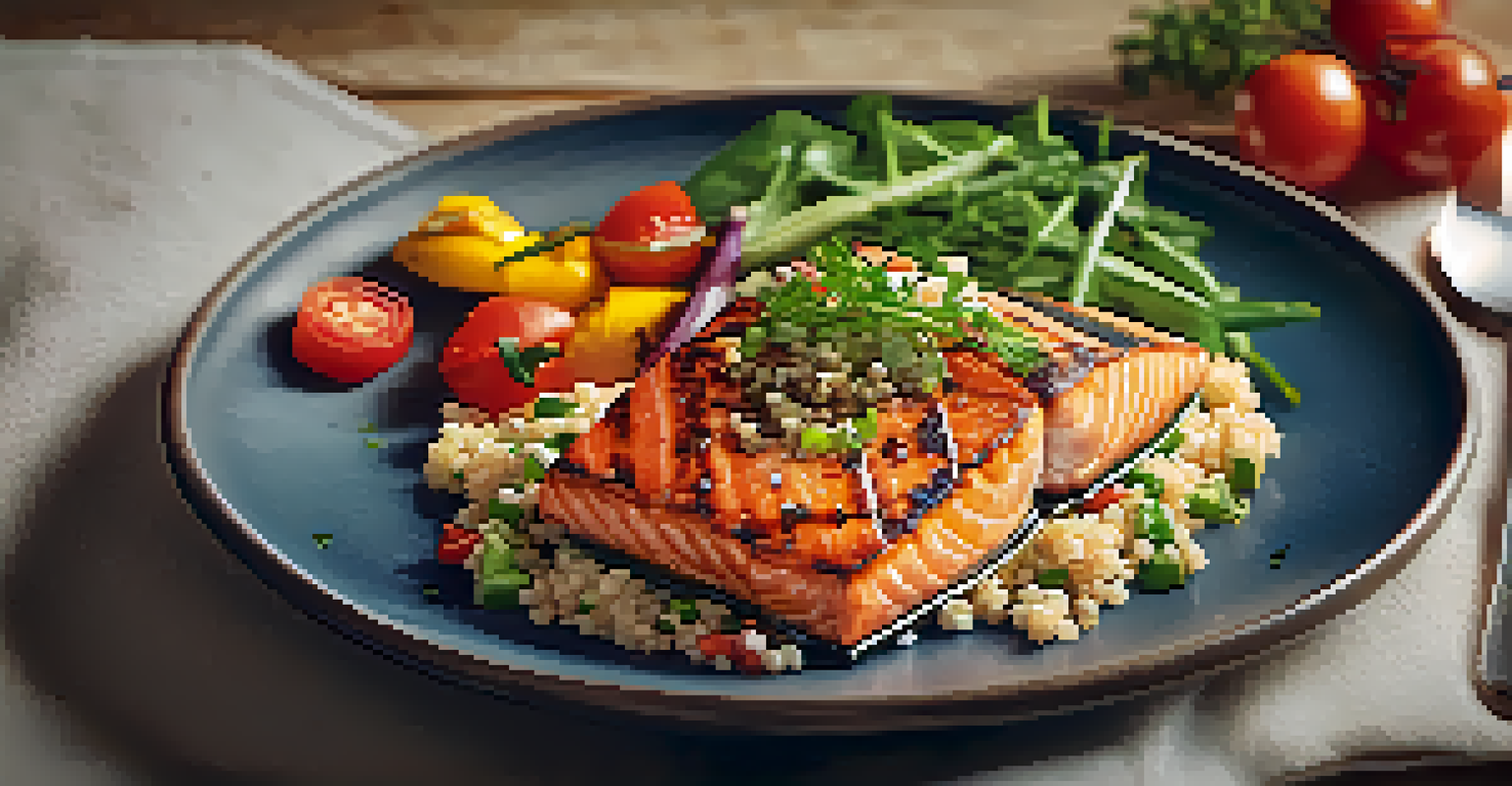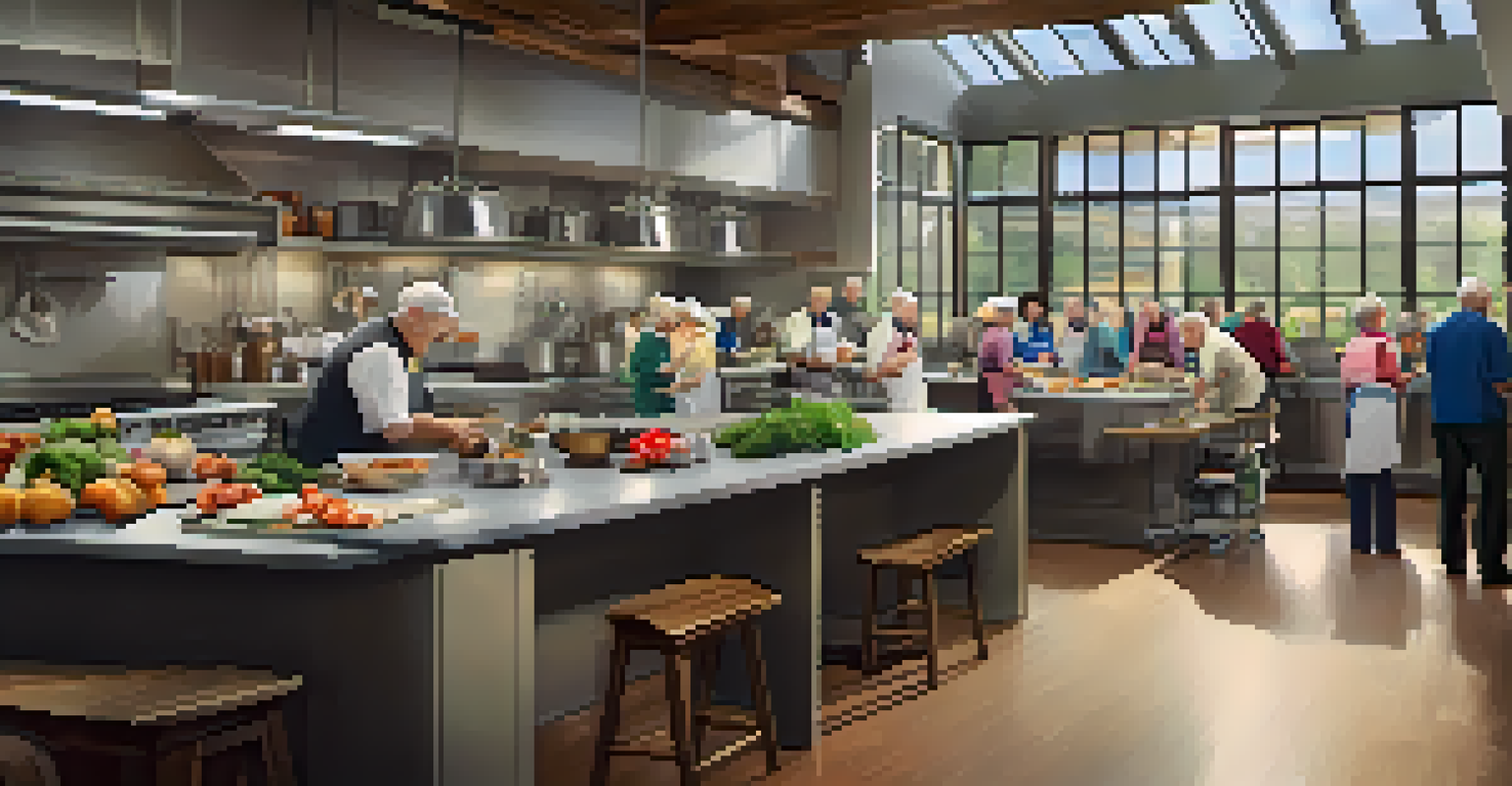Healthy Cooking for Seniors: Workshops Tailored for You

Understanding the Importance of Healthy Cooking for Seniors
As we age, our nutritional needs change, making healthy cooking essential. Seniors require balanced meals that provide vital nutrients while being easy to prepare and digest. Emphasizing heart-healthy ingredients can help manage conditions like hypertension and diabetes.
Cooking is like love. It should be entered into with abandon or not at all.
Cooking for health doesn't mean sacrificing flavor! Learning to prepare delicious meals can significantly enhance the quality of life, allowing seniors to enjoy their food while nourishing their bodies. A focus on fresh vegetables, lean proteins, and whole grains can make a big difference.
Moreover, cooking at home can foster independence and confidence. It encourages seniors to take control of their dietary choices, leading to better health outcomes and a more active lifestyle.
What to Expect from Senior Cooking Workshops
Senior cooking workshops are designed to be engaging and interactive, focusing on practical skills. Participants can expect hands-on experience, where they learn to prepare easy yet nutritious meals tailored for their dietary needs. Instructors often share valuable tips on meal planning and grocery shopping.

Additionally, these workshops promote social interaction, creating a community atmosphere where seniors can bond over shared experiences. Cooking together not only enhances culinary skills but also fosters friendships, reducing feelings of isolation.
Healthy Cooking Boosts Senior Health
As nutritional needs change with age, healthy cooking helps seniors enjoy balanced meals that support their well-being.
Finally, workshops often cover various topics, including food safety, portion control, and the benefits of mindful eating. This comprehensive approach ensures that seniors leave with not just recipes but also valuable knowledge that can lead to healthier eating habits.
Key Nutritional Focus Areas for Seniors
When considering nutrition, several key areas are particularly important for seniors. First, adequate protein intake is crucial for maintaining muscle mass and strength. Incorporating sources like fish, beans, and lean meats can help support these needs.
Food is not just what we eat. It's how we connect with each other, share our histories, and celebrate our lives.
Next, seniors should focus on calcium and vitamin D to promote bone health. Dairy products, leafy greens, and fortified foods are excellent choices that can easily be included in meals. These nutrients play a vital role in preventing osteoporosis and fractures.
Lastly, hydration is often overlooked but is incredibly important. As we age, our sense of thirst may diminish, leading to dehydration. Encouraging regular fluid intake through water, herbal teas, and hydrating foods can keep seniors feeling their best.
Incorporating Cultural and Personal Preferences
One of the joys of cooking is the opportunity to explore different cuisines and flavors. Workshops can celebrate cultural diversity by incorporating traditional recipes that resonate with participants, making meals more enjoyable and familiar. This is particularly important for seniors who may have grown up with specific culinary traditions.
Moreover, personal preferences should always be considered during these workshops. Whether someone has a sweet tooth or prefers savory dishes, tailoring recipes to suit individual tastes can encourage greater participation and enjoyment in cooking.
Workshops Foster Skills and Community
Senior cooking workshops provide hands-on experience, promoting culinary skills while creating a supportive community.
Encouraging seniors to share their favorite recipes can also enhance the experience. This not only empowers them but also allows for the exchange of culinary wisdom among participants, creating a vibrant cooking community.
Adaptations for Dietary Restrictions
Many seniors face specific dietary restrictions due to health conditions, which can complicate meal preparation. Workshops provide a supportive environment to learn how to adapt recipes for common issues like diabetes, hypertension, or food allergies. This empowers participants to enjoy cooking without feeling limited by their dietary needs.
For instance, learning how to substitute sugar with natural sweeteners can help those managing blood sugar levels. Similarly, understanding how to use herbs and spices instead of salt can enhance flavor without compromising health.
Trained instructors can assist participants in navigating these challenges, ensuring that every recipe is inclusive. This focus on adaptability allows seniors to feel confident in their cooking abilities, regardless of their dietary restrictions.
The Role of Technology in Modern Cooking
Technology plays an increasingly important role in cooking today, and seniors can benefit significantly from it. Many workshops now incorporate the use of tablets or smartphones for accessing recipes, cooking videos, and nutritional information. This can make cooking more accessible and enjoyable.
Additionally, smart kitchen appliances, like slow cookers or air fryers, can simplify meal preparation. These tools often require minimal effort, allowing seniors to prepare healthy meals without spending too much time in the kitchen.
Adapt Recipes for Dietary Needs
Workshops empower seniors to adapt recipes for dietary restrictions, ensuring enjoyable cooking experiences without compromising health.
Finally, online communities and social media can provide support and inspiration. Seniors can connect with others who share their culinary interests, exchange recipes, and celebrate their cooking successes, fostering a sense of belonging.
Finding Workshops Near You
If you're interested in participating in a cooking workshop, numerous resources can help you find the right one. Local community centers, senior centers, and hospitals often offer cooking classes specifically designed for seniors. A quick search online can also yield many options in your area.
Many organizations focus on nutrition and cooking for seniors, providing both in-person and virtual classes. This flexibility ensures that even those who may have mobility issues can participate and benefit from these workshops.

Finally, don't hesitate to ask friends or family for recommendations. They may know of programs or classes that have positively impacted others in your community, providing you with trusted options to consider.